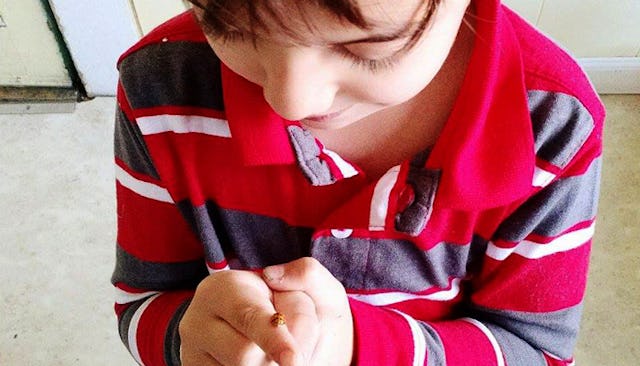Dear ABC: You Owe The Bleeding Disorders Community An Apology

When I tell people that my son has hemophilia I tend to hear the same kinds of questions. Is he related to a Russian Czar? No, he isn’t. Will he grow out of it? No, he won’t. Can you bubble wrap him? No, but the thought has certainly crossed my mind a few times! Not once has curiosity ever pushed folks to ask me, “isn’t that a disease you get from incest?”
But thanks to an episode of ABC’s Secrets and Lies that aired on March 16th in which, Michael Beach’s character stated: “Hemophilia is the nasty byproduct of incest” I have now heard it all. Perhaps ABC would like to have the frightening conversation with my son to explain that he is not a product of incest.
I get that TV has to make big ratings in order to make big money. And I get that there is a thing called creative license that writers use in order to propel a fictional story forward. But here is what I don’t get. The writers would never have prompted a character to say, “Homosexuality is a nasty byproduct of incest.” Or “AIDS/HIV is a nasty byproduct of incest.” To say something so insidious towards any group based on race, gender, or creed would set off riots in the streets.
So why did the writers of ABC’s new hit drama Secrets and Lies find it tolerable to spread such a grossly inaccurate and inflammatory statement about hemophilia?
Is it possible that the writers made a calculated bet that because it is a rare genetic bleeding disorder affecting 1/5000 male babies that perhaps the general public might not be savvy enough to catch the misinformation? Is it possible that they assumed that the bleeding disorder community is so small, representing 20,000 families nationwide, that we would not possibly have the media means to stand up and protest such a horrific mischaracterization of hemophilia?
Or is it just possible that the writers are completely ignorant and haven’t heard of this handy dandy thing called Google?
Had they spent five minutes doing research they would have found a vast amount of information. In less than 30 seconds I was able to type in the term “hemophilia” in the Google search engine, click on The Hemophilia Federation of America link and find this definition of the disorder:
“It affects mostly males, as it is an X chromosome linked condition. Hemophilia affects 1 in 5,000 male births in the U.S. and approximately 400 babies are born with hemophilia each year. 400,000 people worldwide are living with hemophilia and about 20,000 are living with it in the United States alone. All races and economic groups are affected equally. People with hemophilia who have access to factor replacement therapy have a normal life expectancy.”
Perhaps the writers are reading in between the lines, but I’m not reading anything about incest as being a known cause for hemophilia. The nature of the misinformation on ABC’s Secrets and Lies is vicious and terrible. If it was the intent of the writers to defame the entire bleeding disorders population I cannot say but I certainly can let the voice of a well-respected leader in the hemophilia community chime in with her thoughts on this awful mistake.
“It’s horrible that in this day and age, with so much information available about the clinical definition of hemophilia, and bleeding disorders, that ABC would allow this to happen. ABC said that hemophilia is caused by incest. That is entirely incorrect and they need to fix this mistake in a very real and far reaching way. They have the opportunity to help heal the wound inflicted on our community in a meaningful way.”
–Jill Packard, Co-facilitator, Hemophilia Federation of America, Care Access Working Group and President, Hemophilia Alliance of Maine
At last check there are more than 3,000 signatures on a Change.org petition challenging ABC to issue a public video apology. Those numbers are growing quickly thanks to Facebook and Twitter.
Since March is Hemophilia Awareness Month this would be an excellent time for ABC to take responsible ownership of their poor judgment, issue an apology, and become an ally to the thousands of families who live with a bleeding disorder.
For more information on bleeding disorders please visit Hemophilia Federation of America or The National Hemophilia Foundation.
This article was originally published on